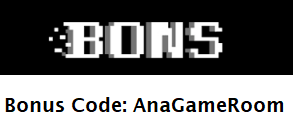Be a Hold'em Tournament Champion
We have completed our discussion of Texas Hold’em Buy-In and now will focus our attention to Texas Hold’em Tournaments.
What's the Difference between Texas Hold'em Tournaments and Texas Hold'em Buy-In
There are several differences that we will go over, but the main difference between Buy-in and Tournaments is the amount of time per session that players need to allow the free time when playing Hold’em.
15 – 20min to spare? Waiting for someone? Then you have time to play few hands of Texas Hold’em Buy-In. Infinitive free time on your hands? Then you can jump in to a Texas Hold’em Tournamant.
Quick Game Overview
- 1. Each Player Gets 2 Cards
- 2. Betting Round
- 3. 3 Cards Turned Face Up (The Flop)
- 4. Betting Round
- 5. 1 More Card Turned Face Up (The Turn)
- 6. Betting Round
- 7. 1 More Card Turned Face Up (The River)
- 8. Betting Round (Hand is over and go to next hand)
Who is the Winner?
After all cards are turned, the Players remaining (Players who have continued betting or calling and did not quit (Fold) all show cards.
In total, each Player now has 7 cards. 2 in their hands, and 5 (Turn cards on the board/table). Since, all cards are now showing the Dealer will announce the best hand (Winner), based on each player’s best Poker Hand made with any of the player’s 5 Cards. For this discussion, let’s assume readers know the basic of 5 Card Poker and the games’ hierarchy: Small Pair, High Pair, Two Pair…etc. to Royal Straight Flush (the best possible hand).
Tips to Win
Know the Odds:
Generally, there are 8 – 10 players at a Texas Hold’em Buy-In Table. Therefore, the best hand would be in 1 in 8, 1 in 9, 1 in 10, depending on the number of players in the game.
A serious skew in the straight line mathematical probabilities, is that players holding large amounts of chips have a much more favorable chance of winning the hand. Why? Players with small amounts of chips, generally will not be able to bluff (Fake bet that player pretends to have a good hand) or run out (Big bet intended to have other players fold (quit their hand)) in intention of reducing the amount of continuing players from improving their hands and drawing out. (Bettering the players’ current hand as new cards are added in the Flop, Turn, and River addition of cards playing from 2 – 7.
Which Seats are Strongest or Weakest:
Does it matter which seat the Player is in to increase or decrease the the odds of winning?
Generally, Hold ’em is no limit. So, overall the Player with the most chips (Big Stack) has the best control of the game, thus the best odds of winning.
If you are the Player to the right (before the Big Stack Player) then odds are not in your favor.
If you are the Player to the left (after the Big Stack Player), then odds are more favorable, since you are in the position to have the benefit of the Big Stacker already betting, calling, or checking.
Small Blinds and Big Blinds:
Small Blinds are the First Player to bet after the Flop (3 Cards turned face up on the board/table). Since, this position is at a disadvantage, due to force to be first, this Player will post only half of the Big Blind. example: If the Big Blind post is $10, then Small Blind is required to post $5.
Big Blinds are the 2nd Player to bet after the Flop. Big Blind Players are required to post full bet, and then other players is session, via clockwise, have the opportunities to Fold (quit), Call (equal the post), or Raise (increase the post or bet).
Small Blinds and Big Blinds are considered the early betters. The Players sitting in the late better seats are considered to have more favorable position, since they see the “action/bet” of the preceding players.
Any Other Differences to Consider When Playing Tournament Hold'em:
Other than the infinitive time needed to play in Tournament Hold’em to determine the winner, there are some other differences between Buy-in and Tournament Play.
Pertaining to the time factor of play mentioned, Buy-in is generally, hit it quick, take the wins and call it a day/session, and save those winnings for another day. In Tournament Play, the ultimate Goal is to be the last player left with chips, thus the Champion.
Another notable difference in play is that all Players in the Tournament start with exactly the same amount of chips. Thus, to begin the Tournament, there are no Big Stackers or Small Stackers at the table.
Tournament Entrance Fees and the amount of chips given to each Player vary from Casino to Casino, and sometimes Room to Room within the Casino.
Wanna Be The Champion
- #1 Dont' Join the Tournament on Scared Money.
- #2 Don't be Concerned of Losing all your Stack quickly.
- #3 Don't Play to see how long you can last, but Play to win.
- #4 Identify the Players playing on Scared Money.
- #5 Don't Try to Overead the actions/tells of other Players.
- #6 Table Talk is a No-no!
- #7 Understand, you only have 2 cards, and with 5 more cards to add, any hand might be the winner, despite the oddsList Item
1. Overall, Players will be best guided to not join high entrance fee Tournaments in hopes of getting rich quick as the Champion. Best thoughts are to stay with Tournaments that are in your budget and play as a Poker Play and not a Lottery Ticket Gambler that has spent the rent money to join the Tournament.
2. Frequently, the Champion gets off to a quick start, so, again, scared money, will not help your playing plan. If the seating position is correct, and you feel you have 50/50 or better chance, going All In (Betting all your Chips) can sometimes work out very favorable in the quest to be the Champion.
3. My neighbor asked, “How long were you able to stay in the Tournament before out of Chips?” I replied, “I was out in the 2nd hand.” He laughed. I commented, “I have won nearly 15 Tournaments, how many have you won?” Bewilderdly, he replied “Well, none.” He took back his laugh.
Don’t get involved of thoughts of others as to how you have become a Champion. Playing to stay in long, will most often, run you out of Chips as the Blinds continue to increase. In the end, yeah, you played longer, but still walked away empty handed. Go for the Big Stack quick when possible. And, if you are in a small entry Tournament, you can simply go find another Tournament just starting, and maybe have better luck to get the Big Stack quick.
4. Players playing tight are generally the Players on scared money. Unless that Player is holding a power house 2 cards, they will easily be run out of the hand, and, in reality, are somewhat in the Tournament to see how long they can last. Best to try to run them out to keep them from drawing out, But if they are in the hand, might want to consider bluffing them in the next hand, because there is a good chance they have the winning hand on this one.
5. Don’t focus too much on trying to read tells on other Players. Focus on your hand, the tight players (generally the players on scared money) will show themselves a such, without you needing to focus your thoughts on them.
6. Only Beginners table talk. Concentrate on your hand and don’t put decisions up for the Table vote. Champions are usually quiet and move on. *Exception: Pretty girls can throw a curve ball in everything. If the gullible guys want to suck up and give you all the information on what they are holding, gosh, ear up and take it in.
7. Can a 2 – 7 off suit win? Yes. Can a pair of Aces lose? Yes. Important to remember, each Player is only holding 2 cards. Until the Flop (first 3 cards on the table) are turned. Anything can happen. Big Blind players were already forced in (unless someome raised) and that Player could be holding most anything. See the Flop when possible.
AnaGameRoom.com-whatzthis.net is not responsible for losses of funds of site visitors when wagering anywhere, including at or on online Casinos and/or Sports Betting websites. Any gambling inherits high percentage of risk and possible losses of wagered funds. Please take due care in your decision to process bets.



